
Why Franchising
Represents a Better Path
to Business Ownership
Ep. 574 ft. Jon Ostenson
“Our best franchisees were the ones that followed the system the closest.”
Jon Ostenson
Bio
Jon Ostenson is the Founder and CEO of FranBridge Consulting, which ranked 584th on the Inc. 5000 list as one of the fastest-growing companies in America. A former corporate executive and past President of ShelfGenie, Jon has sat on all sides of the franchising table—as franchisor, multi-brand franchisee, and now trusted advisor. Widely recognized as a leading voice in non-food franchising, he has helped thousands of entrepreneurs and investors explore opportunities across industries such as home services, wellness, senior care, and pet care. Jon is also the bestselling author of Non-Food Franchising, a practical guide for building wealth and business ownership without starting from scratch. Through FranBridge, he connects clients with over 600 vetted franchise brands and provides strategic, hands-on support at no cost to the client—helping them step confidently into semi-passive investments or full-time business ownership.
Shownotes
Lesley Logan sits down with Jon Ostenson, author of Non-Food Franchising and CEO of FranBridge Consulting, to explore why franchising—especially beyond the food industry—is one of the most underutilized yet powerful paths to entrepreneurship. Jon shares how franchising gives you proven systems, built-in marketing, and a peer network, while also revealing what green flags (and red flags) to look for when evaluating opportunities. You’ll walk away seeing franchising in a whole new light—with clarity and confidence.
If you have any questions about this episode or want to get some of the resources we mentioned, head over to LesleyLogan.co/podcast. If you have any comments or questions about the Be It pod shoot us a message at beit@lesleylogan.co.
And as always, if you’re enjoying the show please share it with someone who you think would enjoy it as well. It is your continued support that will help us continue to help others. Thank you so much! Never miss another show by subscribing at LesleyLogan.co/subscribe.
In this episode you will learn about:
- Why franchising can be a faster, safer path to business ownership.
- The surprising industries thriving in non-food franchising.
- How semi-passive franchise models allow people to day jobs while building a business.
- The real numbers behind startup costs, royalties, and profit potential.
- Green flags and red flags to watch when evaluating franchise opportunities.
Episode References/Links:
- FranBridge Consulting – https://franbridgeconsulting.com/
- Jon Ostenson on LinkedIn – https://www.linkedin.com/in/jonostenson/
- Jon Ostenson on Facebook – https://www.facebook.com/JonOstenson1/
- Jon Ostenson on Twitter – https://twitter.com/Jon_Ostenson
- Jon Ostenson on YouTube – https://www.youtube.com/@JonOstensonFBC
- Book: Non-Food Franchising by Jon Ostenson – https://a.co/d/29XayrQ
Transcript
Jon Ostenson 0:00
Lesley, franchising is not right for everyone. I think there’s some people that, to your point, are too entrepreneurial that want to put their thumbprints all over a business. And you know, it may not be a good fit for them. However, for the vast majority, it’s my humble belief that franchising represents a better path to business ownership.
—-
INTRODUCTION
Lesley Logan
Welcome to the Be It Till You See It podcast where we talk about taking messy action, knowing that perfect is boring. I’m Lesley Logan, Pilates instructor and fitness business coach. I’ve trained thousands of people around the world and the number one thing I see stopping people from achieving anything is self doubt. My friends, action brings clarity and it’s the antidote to fear. Each week, my guests will bring Bold, Executable, Intrinsic and Targeted steps that you can use to put yourself first and Be It Till You See It. It’s a practice, not a perfect. Let’s get started.
—-
Lesley Logan 0:53
All right, Be It babe. I have a topic we have never touched. I’m so jazzed about this, I actually found it really, really fascinating. And this year is like my year of being curious and understanding more and more about businesses as our business continues to grow. And so when I met Jon Ostenson, I have so much more knowledge, so much more understanding, so much more excitement and inspiration. And I really wanted to bring this to you, because I know how many of you are like, wanting to make other income, wanting to make more income, one of the questions I get all the time is like, how do I make passive income? How do I have another income stream? I know that managing your money in stocks can be overwhelming, and so I wanted to bring a whole topic to you that I think could be really, really fascinating. So Jon Ostenson is the author of Non-Food Franchising. His company is FranBridge Consulting and so we’re gonna talk about franchises. And if you’re like, oh, this could be so boring, I promise you, it’s anything but boring. It’s quite fascinating. Even if you never go into this, you’ll actually like, look at franchises and different businesses in a whole different light. And I found it to be really eye opening. And I feel like a lot of my friends should be doing this, and I don’t know, maybe, maybe I’ll create a portfolio and do this too, but I now have so much more understanding, and I’m really excited for you to have that, because to be it till you see it in anything, the first thing we need is have answers and understanding and also some curiosity in a topic we might not have known anything about. So if you’ve been wanting to start a business, maybe instead of starting something new, you actually want to franchise and so here is Jon Ostenson.
Lesley Logan 0:53
All right, Be It babe, I’m really excited. I’ve read the book by our guest today, and this is a really interesting topic we have never talked about, and I’ve always been slightly interested in, and now I’m even more intrigued. So Jon Ostenson is our guest today. Can you tell everyone who you are and what you rock at that’s so unique, so niche and so wonderfully that we need to talk about it?
Jon Ostenson 2:40
Yeah, absolutely, no. Jon Ostenson, here in Atlanta, Georgia, I’ve got three young kids I chase around on a daily basis, but you know, I spend most of my time helping my clients find the right businesses for them. And so, you know, we work with over 600 different franchise brands, and what I call Non-Food Franchising. So it’s all these industries outside of fast food that incorporate franchising. And yeah, it’s entirely free to work with us, and I get to help our clients navigate, what are the top opportunities given their background, their interest, what they’re looking to do? What are those top available opportunities in their market that can be a fit for them?
Lesley Logan 3:11
I so I really, this is, like, really interesting, because first of all, of course, growing up, I only knew like, food franchisers, and I’m just not into cleaning a kitchen. So, like, that was, you know, different. And then also, like, in my industry, there are now, like, franchises in in the Pilates world, but there’s always been franchises in the fitness world. And I guess, like, I guess where we could start is, like, wait, why would someone do a franchise versus, like, start their own non-food business, you know, like, what, what would be like, the things that they’re thinking about? Because one of the reasons I want to have you on is, we have had a lot of coaches who are entrepreneurial. And I also think, like, not everyone is an entrepreneur, but also I don’t want to, like, tell people that, like, I think they need to figure that out for themselves. So why would someone franchise versus start something themselves?
Jon Ostenson 3:59
Yeah, great question. And you know, franchising is not right for everyone. I think there’s some people that, to your point, are too entrepreneurial, that want to put their thumbprints all over a business, and you know, it may not be a good fit for them. However, for the vast majority, it’s my humble belief that franchising represents a better path to business ownership. You know, you’ve got a lot of things already in place. You’ve got a proven business model that’s been successful in other markets. You’ve got a coach on the sidelines in that franchisor that’s supporting you and their team. You’ve got other franchisees that are living the same thing day in, day out, in their markets. You’re constantly exchanging best practices. You’re in business for yourself, but not by yourself. And, you know, being able to step into a business where on day one, the marketing is pretty close to optimized because they know how to run, you know, and the franchisor is doing a lot of that for you. You’ve got efficiencies and supply chain, and there’s just a lot of opportunity that franchising opens up. And what I tell our clients is, hey, you may double down and triple down on franchises and build a whole empire of franchises. A lot of our clients do, or you may decide, hey, after franchising, let’s go start my own business. I guarantee you that next business is going to be better for having had that franchise experience and understanding, how do you stand up a business, what are the best practices in the processes that go around it?
Lesley Logan 5:09
Yeah, I mean, like, I think that’s really cool, because I remember, you know, when I wanted to, first of all, when I became a Pilates instructor, I never thought I’d own a studio, because I worked at a I rented from a studio, and I saw how much stress she was under, and then I worked for a company, high end fitness business, and I got to run a studio for them. And I was like, oh, this is so nice, just to have everyone tell me the budgets, and tell me how much people are getting paid and and do all the do all the math, and then I can just do the thing that I really love. And so in a way, that’s kind of like what you’re saying, like a franchise is a proven like, it’s a business that’s already been in existence. It’s proven, like, who they’re for, what they do, how they market. And so you get to kind of hit the ground already running, in some ways, am I right?
Jon Ostenson 5:53
Yeah, you start on third base instead of first. You’re not having to test everything now, in exchange, you’re paying a royalty back to the franchise or right? And franchising is just like everything. Not every company is created the same. Every industry has got good players. You’ve got ones that aren’t as strong. That’s where we come in to help our clients really identify the companies that are providing the most value, that can get them to where they want to be.
Lesley Logan 6:13
Yeah. So I guess, then I guess maybe I should have started with, what is a franchise. Maybe I should have started there. And then also, if you can talk about, like, do, do companies that are franchises, they have already been in business before they’re selling off businesses, or they they start out that way, like, do you get it on the ground level?
Jon Ostenson 6:34
Yeah, well, hopefully they’ve already proven out the model, at least in one location, if not in multiple locations, you know. And they’re well capitalized, they’ve got a team to support franchisees, but no franchising at its roots, you know, it’s really three things. That’s, it’s a shared brand, we all know that. But then it’s, you know, that there’s a system, and there’s guidance, and there’s value being provided from a home office to that franchisee, to that location. The franchisees give me some sort of payment back in the form of a royalty, typically, to that franchisor. So it’s really those three things. So there are companies out there that are probably operating as franchises that may not have franchise, but technically, that’s what a franchise is. And again, when I say the F word franchise, people think fast food. I mean, that’s what comes to mind. But there’s so many different industries out there outside of food, and I’ve got nothing against the food guys. We need them. We support them. But again, there are easier ways to make money that may require less employees, less operating hours, that may carry higher margins because you don’t have the food waste, they may be less susceptible to consumer whims. I always say that frozen yogurt was big until it wasn’t. Most of our clients are liking opportunities that aren’t trendy. They’re not going out of style, and they’ll always be mainstream.
Lesley Logan 7:46
Yeah. Can we talk about like, what are like some of the, what are some of the non-food franchise like, either if you want to name names, or if you want to name like areas of business? Because maybe it would help people to hear like, there, there’s actually franchises in an industry they already have experience in.
Jon Ostenson 8:01
Yeah, you know. And I’d say 90% of our clients get into something in an industry they don’t have experience in. And that’s the beauty of franchising, is it allows for those pivots, but you take the transferable skill set. So yeah, examples there, we’re seeing a lot of interest, I’d say in the general theme, it’s businesses that will do well regardless of the economy, regardless of tariffs, regardless of, you know, other exterior factors. And so it’s things that people will always spend money on. So home and property services are a huge area. Health and wellness. McKinsey just came out with a study saying it’s now a $480 billion a year industry in the US, growing at 10% so health, you know, wellness, is now mainstream, which I know you would agree with it’s categories like kids, pets, seniors again, things that people will always spend money on regardless. And you know, within these there’s so many different niches. I mean, I can just, you know, I’m thinking of in-home senior care. We have a lot of clients doing that, but then I’ve had clients that have been placed there that came back said hey Jon, what’s a tangential opportunity that can tag onto this, and I introduced them to one that provides wheelchair ramps and stair lifts and retrofitting within a home, allowing people to age in place. Youth soccer, I’ve had so many clients do well in youth soccer, tutoring, kids-related, pets, everything from pet grooming to pet boarding to dog training, you know, but.
Lesley Logan 9:19
That’s crazy, because I would never have thought those things. And also, like, I because we travel around the world. We were talking about that before we hit record, I find myself, like, like, in shock. Sometimes I see a business and I’m like, like, how much did they need to get started? You know? Because, like, what I love about like, like, one of the things that kept me from starting my own studio is, like, just the barrier of entry. I didn’t know how to read a lease, I didn’t know what kind of insurance I needed to have outside of what the insurance I had as a renter. I didn’t know that. And then I had to, like, buy all the equipment, and then it’s like, oh, like, literally, my clients came the first like, where’s the trash can? I was like, oh, yeah, we need a trash can. Like, you know, you know, right? Like, I was like, I was like, flying by the seat of my pants. But like, what you’re saying is, like, I, if I was like, I need a change in my life, or I actually just want to have something that’s working alongside what I’m already doing, I can go into another industry, and then they already have the blueprint. So, like, I already know how much it’s going to cost me to go all in. I know how much it’s going to cost me to run it, and I also have an idea, in theory, at least as I learned this from your book of, like, what I could make off of this investment, which is a little different than stock market, like you think. I mean, we all hope it’s going up right now, we’re riding a different wave. But, like, but like, you know, so am I right when I say, like, there’s like, a nice blueprint there that kind of allows you to know more about what you don’t know?
Jon Ostenson 10:43
Absolutely. No, you go in and you know, nothing’s ever a sure thing, right? I never want to pretend like it is. Business ownership is hard. It takes work. If it was easy, everybody would be a business owner. But franchising does make it a lot easier and a lot more predictable, right? I mean, that’s why banks love providing SBA loans to franchises over startups, right? It’s just more predictable, and the success rates are obviously a lot higher all the data shows, you know, but I’d say, going in, you know, there’s a whole exploration process, and that’s where we take our clients through, hold their hand as they’re having these conversations with their franchises. You know, learning a lot, asking good questions. They, they get a chance to talk to other franchisees in that system before they ever buy. You know, they get kind of the inside knowledge. They get a franchise disclosure document, which is the history of the franchise and all the information. And to your point, the financials on the all in investment. And you know, there’s going to be some variability in there, but it outlines that, and then talks about the historical financial results, what you could expect to make if you execute according to plan. And so you know, you can make disproportionate returns on your investment. Again, because you’re, you’re putting effort in, right? If it was just thrown in an index fund, you know, you’re not going to be able to make, you’re going to be capped at what you can make. However, with this, you also get the tax benefit. So it’s really a, I call it the trifecta. You’re, you’re building towards cash returns. You’re obviously building an asset that’s going to have exit value down the road, and in all likelihood, you’ll sell to another franchisee in the system. That’s very common. And then third, you get the tax benefits of business ownership. And if you have a W2 job or spouse with a W2 I mean, this could be a great offset. I mean, there’s so many levers that the government set up the tax playbook to incentivize business ownership.
Lesley Logan 12:19
Yeah, well, one of the reasons why we love being a business owner, I definitely enjoy those. I want to, like, just kind of tap into something, because you talked about, like, being a W2. So realistically, how many people do you know, like, have a job and then have a franchise that’s successful? Like, are they overworking? Are they 120-hour work week kind of person? Or, like, is that a normal thing that people can do?
Jon Ostenson 12:43
Roughly half of our clients start out with a manager in place. It’s what franchising would call semi passive or semi absentee or executive model. I always want to say hey, stop. You know, let’s not sugarcoat this. It takes work to stand up a business. You know. I don’t want to ever pretend like it doesn’t so, you know, it is very doable within a franchise system, because you’ve got a franchisor and their team supporting that manager that you put in place on a day to day basis, they can answer a lot of the questions and kind of hold their hand. So it takes some of the burden off of you. So much of it your ramp up time and success comes down to who you put in that place. You can have a great vehicle, you still have to have a great driver, so someone that has fire in the belly that you incentivize. You know that’s a hard worker. They can make your life very easy, but if it’s not the right person, you can find yourself with some headaches and leaning in. So I’d say that is the biggest variable that I see. But I’ve got so many success stories of clients that have gone that path. I should always want to make sure that they go in eyes wide open, that in the early going especially, it will take work.
Lesley Logan 13:43
Yeah, yeah. I mean, like, I think that’s really important. Okay, let’s just take, take a step back, Jon, how did you get into doing this? Like, did you, did you always know, like, you would be in franchises? Like, did you fall into franchises? Like, tell us the journey that got you here.
Jon Ostenson 13:56
Yeah. You know, like so many of your listeners, I spent many years in the corporate world, and you went to grad school and did all the things you’re supposed to do as a W2 and had a great run. But, you know, had that desire, like so many, to be a business owner and to do something more entrepreneurial, and didn’t know what it what it looked like. And I really fell into franchising. So about eight years ago, I left the corporate world, assumed the reins of a business called Shelf Genie, which is a large franchise system. I served as their president, supporting our home office and all of our franchisees, and I really fell in love with the franchise model through that experience. And I just saw how so many different backgrounds got involved in a shared system because of the support that we were providing. So long story short, I partnered with the founder of that company. We spun off. We’ve invested in franchises ourselves. I’ve continued to invest in franchises on my on my own outside of that, so I’ve been a franchisor. I am a multi brand franchisee as well, and started the consulting practice about little over six years ago, and now I give it most of my full time focus, and just love helping others connect the dots, because I just hear the same conversations every day. So many people, oftentimes midlife, they’re saying gosh, you know, I’ve looked around. And they all know some business owners, and they see them out playing golf or, you know, going to their kids activities. And they say, there’s a little bit of FOMO, right? And, but they say, I don’t have that genius idea. I’m a little risk averse. I don’t know where to start. That’s where I come in and say hey, look at all these other people that have done done this through franchising with similar backgrounds, and here’s why it worked for them. So absolutely love helping them. I personally, on the franchisee front, this just shows a little bit of the variety out there. I kind of like home and property services personally. So I’ve got one business that works on parking lots. It provides asphalt paving and line striping, you know, non sexy need based industry, right? I’ve got another one, is almost like an equipment rental business. It provides temporary walls like containment walls around renovation projects and construction sites. It’s a great B2B business. I’ve got one that this is kind of more in the health and wellness genre. It’s uses 3D printing to provide custom inserts and insoles for shoes, right? It talked about a niche, right? But we cater a little bit to the older population. So I’ve got it down in Delray, Florida, which is a great market. I’ve got another one where I’m on the franchisor side, I’m invested that provides custom pull out shelving for your kitchens and pantries and stay at home moms are great for that business. They’re great designers. They can work when they want to and go in and be very conversational, and it’s just cool that, you know, we’re creating a lot of jobs out there and helping a lot of communities.
Lesley Logan 16:28
Okay, that is so all of those things, I would not have thought that, like, those are franchises. I guess I just thought, like, some guy in Las Vegas, like, start a business, like, putting fences, you know, and then it’s like, but then I do see like, oh, it’s a company. And then you’re like, how, like, how, who got into, like, having a business in every city that has, like, fences. But now that I’m like, you know, now that the wall been pulled over my eyes, I can under, away from my eyes, I can see like, oh, these are companies that got started, and then they had success, and then they basically created a blueprint that they could sell to other people, and then that’s how they spread their wings, because they’ve got good systems in place. And then people like you, or people like listening are like, Oh, I could do that. I actually, like, I have the funds for that. I like that area, or, you know, I can have the time for that. I just wouldn’t have thought that those are those. There’s things out there. And I was reading your book, one of the things that we all have to realize is, like, there’s a massive population of people who are getting older, and there is not enough like services for them, and so like to be able to get into a franchise that is like servicing those people that they for a necessity they need. It’s kind of nice, I guess. I have a question, how much of what you have to do as a franchisee, as far as the marketing goes, like, are you curating the marketing? Does the franchise or that’s the parent company, right, like the owner, do they come up with a marketing strategy and you just, like, put it out there. Like, I guess I’m wondering, like, how much of it do you be creative? Because I have a lot of people like, I want to do this, but I hate social media, or I hate writing a newsletter, or I hate doing the the money and the taxes, like, how much does the actual franchisor do for you?
Jon Ostenson 18:06
Yeah, it certainly varies, but I’d say in most cases, the franchisor leans in pretty heavy on the marketing side, and that’s one of the value adds they’re bringing. So they’re creating collateral and brand standards and customizing things for you for your location. But you know, typically they have an in house marketing team. They may partner with an outside digital marketing firm that’s running all your Google ads and social media ads and such. Oftentimes, they encourage you to get involved on the organic side of social media. So it’s, hey, I’ve got a home show coming up. Hey, look at this great job. We just got a five star review. But again, if you need help with that, most of them are able to lean in pretty heavy, because I do have a lot of clients like you said that they hey, I don’t want anything to do with marketing or lead generation. And I, you know, in some cases you have franchises that have national accounts. I mean, that’s a great lead generator. In some cases, they have an in house call center that’s actually sometimes making outbound calls, or, at a minimum, taking inbound calls, setting appointments for you. So, you know, as you go through the expiration process, you want to say, what, what value is that franchisor providing for the royalty that I’m giving them? And, you know, make sure that there’s tangible things that they’re doing for you, oftentimes on the marketing side as an example.
Lesley Logan 19:11
Yeah, okay, you talked about royalties, I guess, for the person who doesn’t understand what that means. What is that? And then what are we what can someone expect on like, maybe not like the best end, but like an average, an average earnings.
Jon Ostenson 19:26
Yeah, so I’d say six to 8% royalty typically is common in revenue, and when you look at financial projections of a franchise system, they’re always going to net out for that royalty, right? I mean, that’s part of the business model. But again, those are oftentimes expenses that you would be paying on your own elsewhere. From an earnings standpoint, well, first off, from an investment standpoint, I mean, we have some clients who are getting into big seven figure deals, but most people like when you look at service-based businesses and you’re all in investment, your franchise fee, startup costs, several months of working capital, oftentimes you’re in the 150,000 to 300,000 range, all in. And some of our clients are using cash, most like the idea of using an SBA loan, where maybe they put in 50,000 cash and then they use an SBA loan for the balance. Some are using an old 401-K from a previous employer, and rolling that over, which is very doable through what’s called the ROBS program. So we help them with all of that. But from an earnings standpoint, it definitely varies. You always want people to take a conservative approach. There are businesses that will start cash flowing as early as three months in. Oftentimes, what you see is maybe six months, six to 12 months, somewhere in that range. Again, we always want to be conservative, but no you can make disproportionate returns. So let’s say your all in investment was 200,000 from their businesses out there, where you can conceivably do a million dollars for first year. I mean, there are a good number of those. And oftentimes you’re kicking off 15 to 20% to the bottom line. So call it 150 to the bottom line. And you may not get that in year one, but that may be your run rate at the end of year one. So 150 on an investment of 200,000 that’s 75%, and then you’re doing, you’re doing that every year, and you’re going to sell that business down the road. So again, but you’re putting effort in, right?
Lesley Logan 21:01
Right, well, well, and it’s like, like, I’m just, like, just forever. I, when I opened up my studio, which was a small studio, I, no, my bank did not give me a loan. I’ve been in business for so many years, like, look, I make, I make over six figures, and I just want, like, a $40,000 loan. And they like, laughed in my face, so I used a credit card. But it was, the investment was like, $40,000 in equipment, all I had to do, and then obviously my rent and everything. And of course, yes, I, because it was on a credit card, I paid that shit off. But, but like you do only have to, ideally, only buy that equipment one time, right? So there’s that. But to to your point, like the money that or time I had to spend on marketing my business, on coming up with the marketing, on testing it out, on doing all that stuff, on also collaborating, also doing the organic, also all that stuff, it starts to go sometimes you’re like, it would be nice if someone could take this off. And even if you’re like, oh, let’s all just hire an agency. Y’all, I have talked to marketing agencies. They are not just 6% like some like, you know, when you think about, like, the marketing agency and the account and the organization and the hiring practices and the onboarding, all that stuff costs money, and so sometimes it’s kind of like, it’s almost like it’s 50% it’s 50 one way, 50% one way, half it does another. It’s kind of like, if you really want to make your own thing and be your own thing, then go do your own thing, and you’ll have all the same expenses. But I can’t believe, and I don’t know, I can’t believe it that an SBA loan would be easier to get if you’re in a franchise. But it makes sense, because there’s a proven track record from all the other businesses, and the SBA is like, oh, this is like, very risk free. It took us a pandemic to get an SBA loan because they were just giving them away. And then recently, a lovely bank helped us get an SBA loan. But, like, it’s not easy when you work for yourself and a non proven kind of a thing to get loans. So it sounds really cool that that would be an option for people.
Jon Ostenson 22:51
Yeah, and probably two thirds of our clients use them. We really don’t have issues getting them. As long as you have semi decent credit, then you know, they have that confidence in the franchise.
Lesley Logan 23:00
That’s so cool. That is really cool. Okay, so I guess you know there’s, there’s probably people going, oh my gosh. Like, I don’t know. Like, I’m not confident as a business owner. Do you have to have, like, would you suggest, like, you have to have some sort of management experience, or do you have people who, like, do the franchisers like, support you in leading a team and how to lead the business that you’re doing. Or, like, are you having to figure that yourself?
Jon Ostenson 23:26
Yeah, there are some franchises where you really don’t have to have a team. You know, you can be kind of a solopreneur in a way, or maybe have an assistant. Most of them do involve people. And people always ask me, what, what does it take to be successful in franchising? And really, it’s two things. It’s one, you’re good with people. You don’t have to be great, but you have to be someone that people want to work with, work for work. So that’s just Business 101, and then secondly, your willingness to follow a system, where I see people get in trouble in franchising is that they come in and they think they’re the smartest guy in the room, and they don’t have the humility to actually learn from others and to follow a system, even if they have questions. When I was at Shelf Genie, our best franchisees were the ones that followed the system the closest. That sounds so cliche, but it’s true.
Lesley Logan 24:04
I mean, just being in business myself for 15 years, like, how, like, there are some days I’m like, I just wish there was a fucking blueprint that I could just wake up, follow, like, there’s days and I’m like, so I can’t imagine, like, not only take advantage of that, but I guess, like, maybe that would be the person who wouldn’t be right for franchising, and maybe they shouldn’t have gotten into it in the first place.
Jon Ostenson 24:29
Yeah, no, I’ve seen clients do very well within a franchise system, and then, you know, I had a client that didn’t do well in it, and the feedback from the franchisor was said, what’s going on? Why is it working for them and not for them. You said, we’ve coached them, we’ve done everything we can, but they’re not willing to follow the system. (inaudible) But certainly, if you have any business experience that you know, those transferable skill sets definitely help and maybe give you a leg up. But I’ve got plenty of clients, you know, doctors or a big client, mainly clientele of ours, most of them don’t have business experience. They may be really, they’re like, smart and smarter than their little niche but they don’t have that business experience. They love the idea of, they know how to learn, and they’re willing to learn, and they’re willing to follow the playbook the textbook. Instead, they come in and they say, Hey, we want to flex that intellectual muscle. And most of them are keeping the day job. You know, they’ve invested too much to walk away from that. But they put a manager in place, and they go out and run a restoration business, or a mobile pet grooming business, something that allows them to flex that intellectual curiosity a little bit.
Lesley Logan 25:29
That is so cool. I just think it’s so cool, like I was, I never thought about, I’ll be really nice, I actually never thought about owning a franchise. I have been wondering and been very curious of like, what if I wanted to open up something that I made into a franchise like that has been on my mind a lot lately, but the more I read your book, the more I’m like, what a cool investment strategy. Like, you know, just to diversify how you’re investing for retirement and wealth, and, like, generational wealth. I don’t have any kids, but like, it would be cool to have have have another way of having an income stream or or a way of growing wealth without having to, not that it’s not work, but also just not rely solely on, like, what my wealth manager is doing with my stocks.
Jon Ostenson 26:13
Oh, because so many of our clients do have kids or family members that they plan on bringing in on the business over time and kind of setting an example for them to learn from as well, and of taking a risk, if you will, a calculated risk. But now from an investment standpoint, I’m an all of the above investor. I invest in real estate and energy and the public markets and private credit. I encourage people to do all that. I just think the business ownership can have a unique place in that portfolio, and there’s a whole lot of tax benefits and other synergies to come from that. So I’m not against any of those other investments. I just think it’s an all of the above approach. And a lot of our clients invest in real estate too, some more actively than others, but there’s a lot of synergy between those two, I think, from a mindset standpoint, from a tax advantage standpoint, and then directly from an industry standpoint, a lot of these businesses support real estate.
Lesley Logan 27:00
What are some, like, green flags about a franchise, or some red flags, like, what are some things that we would like? You’d be like, oh, this looks really this looks really good. I think a client would do really well with this. And then what are some like, ooh, maybe, maybe watch this one, or don’t, don’t sign up for that.
Jon Ostenson 27:16
You know, certain the brand is more important in certain industries. I mean, certainly, food, hotels, things like that. You know, but in a lot of industries, I think about insulation, that’s a $50 billion a year industry, no one can name an installation company, right? And so that’s less important. But still, some of these industries, you know, if it’s a household name brand, then it’s probably sold out in all the good areas of your market, right? And so oftentimes, we find ourselves working with more emerging franchises. You know, they may have five locations, 25 locations, 50 locations. Yes, they haven’t been around forever, but they’re growing fast. And really, the what I look for there, it’s the competitive advantages, it’s the financial models got to be very robust, because you have a smaller sample size to look at. You’ve, you know, the early franchisees have to be saying positive things about their experience. But then a lot of emphasis I put on those companies is the leadership team. I want to see a good blend of industry experience, but also franchise experience represented on that team that’s essentially going to be your business partner. So I would say that the people involved on the other end, I can’t underestimate that enough. That’s something I emphasize with our clients. Let’s vet them. Those are the ones that you want to have a good relationship with that are going to be supporting you day in, day out. You know. I would also say, you know, make sure that, if it’s an early stage franchise, make sure it’s well capitalized. You know, they’ve got plenty of assets in the bank. I have seen companies, at times, rush into franchising thinking it was their gold mine and they needed to have a pot of gold going in, because it’s expensive to franchise, but no, private equity loves franchising, you know, they they invest strategically at the franchisor level very oftentimes, just they love the model and kind of these industries that they play in. There’s a lot of smart money getting involved. But I always encourage people, you know, and that’s why we set up our exploration process the way we did. And, you know, I’m essentially a real estate broker buffer franchises, and so I help our clients understand what’s going on behind the scenes, how to think about this, the questions to ask, provide them with a lot of resources, and then we simply get a referral fee from the franchise brand on the back end when a placement happens, like a real estate model, you’ve got the seller, and none of that’s passed on (inaudible).
Lesley Logan 29:17
So that’s why you’re free. Because, like, I couldn’t believe it. I was reading the book, and I was like, because to me, you know, one of the one of the big hurdles for a lot of people is like hiring a coach to help them make the best decisions. You have to have the money for that and hope that it works, but to work with you, you know, it’s just free for for the person wanting to work with you. So like, you get paid because the franchise company pays you like a real estate so, got it.
Jon Ostenson 29:40
For them, it’s a sales and marketing expense. None of that’s passed on to our clients at all. So you know, whether they go directly to a brand or go through us, they’re paying the same franchise fee. So it’s a nice, it’s really a great model, and, yeah, we’re able to help a lot of people through it.
Lesley Logan 29:58
That is so cool. Yeah. I mean, so you did this six years ago. Okay, so you started right before everything shut down. Like, can we just go back? Was it, what was the be it till you see it, or what would, like, the things you had to do? Because, like, my goodness, during that time, a lot of franchises could be open. A lot of franchises had, like, limitations. Did you worry that, like, this was going to all, like, be affected negatively. Like, did you see the light at the end of the tunnel? Tell me about it.
Jon Ostenson 30:25
Yeah, you know, just like everything, we’re all questioning what’s going on there for a few weeks, but then as soon as the dust settled, I mean, the franchise deals started happening again, and people started jumping back in. They said, I want something that I can be in control of, and I really don’t want to go back to the office. I really, you know, a lot of people took time to think about what they wanted to be until they saw, you know, and they said, you know, that’s the time a lot of introspection, which led to a lot of people saying, maybe now’s the time. If I don’t jump now, when am I ever going to do it? So, you know, there’s a lag effect. Some of those late adopters I’m still having calls with now. They’re like, I’ve been thinking about this for years, and most of them are realizing there’s never a perfect time to jump into business ownership. But, you know, good number of them realize, hey, now’s as good of a time as ever, as ever. And yeah, for me, you know, I love what I do. I’ve had teams in the past of, you know, 50 employees, and you know, I can do that, but that’s not what I love doing. What I love doing is working with clients. I love strategy. I love seeing business models being out there at the tip of the spear, and so I’ve really structured my business now. I had that vision early on that, hey, I’m going to play to my strengths and how I want to spend my time, and that’s what I’ve built. So yeah, love our model and how I get to help people and engage with clients all day.
Lesley Logan 31:35
Yeah, so in that because, like, we talked to a lot of people get really passionate. And I think what, especially when I work with studio owners, like, sometimes their passion becomes like a prison because they like, stop taking care of themselves to like, do their passion like, how do you prioritize yourself so that you can have the mindset and the wherewithal to help the people that you like to help?
Jon Ostenson 31:54
Yeah, I’m probably one of the more intentional people that you’ll meet in that regard. You know, I think through things in the area of five domains, you know, faith, family and relationships, but then also finances, fitness and franchising. So my 5F framework, if you will, you know, but I’m constantly evaluating and balancing, you know, how my day is spent in each of those so, you know, work out on the fitness side. You know, the trainer a couple times a week, and got my infrared sauna and cold plunge and red light and all that here in the office. And, you know, coach my kids teams, you know, teach their Sunday school. You know, try to balance everything and very blessed, very thankful for what I get to do, and that allows me to do the other things I want to do. And I will say I’m the hardest boss I’ve ever had. You know, business ownership isn’t easy. I work myself hard, but there’s so much flexibility, and I’m just thankful. I pinch myself every day having had a W2 job for many years, I could, can never imagine doing that again.
Lesley Logan 32:48
Yeah, I understand that. Okay, this is a really, like personal story we had. Our health insurance company is contracted with another company. Maybe it’s a franchise that, like, comes to your house to, like, do, like, your physical, which is, like, just the meetup, just the heart, the lungs, just the blood pressure, and then, like, talk to you about, like, what doctors you want to see this year. And the whole time I was like, this feels like a scam. Are you casing the joint? Like, what are? What are? I’m like, I feel like this, this is too good to be true. And then they left and my husband are just like, let’s just pretend it’s not a scam. How lucky are we that we could set aside the time in the middle of a workday at our home to, like, take care of our health, and then, like, go back to doing the things we love everyday. Working for yourself is, like, the hardest thing, even if you work for yourself, for your own franchise, like they’re running a business is, you know, there’s only so many days where there’s not an obstacle. You’re like, what the fuck just happened there? But when you are realizing it’s all part of the plan that you set out, like when you actually got what you wanted, it is worth pinching yourself. So I love that. Thank you for sharing that. And I also we second y’all red lights, cold plunges like, work out, move your body. It makes running your business, whatever that is, so much easier.
Jon Ostenson 34:07
Absolutely, absolutely, no, fully agree.
Lesley Logan 34:09
What are you most excited about right now? And like, it can be like in the franchise world, or it can be in like, in your business. Like, what are you most excited about right now?
Jon Ostenson 34:16
Yeah, you know, I I practice what I preach, and I love just trying new things and then bringing them to my clients. So for me, I’ve got my consulting practice, and then I’ve got all these franchises and other investments in a holding company, and I’m just, this is the nerd side of me. I’m just realizing all these different tax plays and alternative investments and how they can work together, and I’m bringing in the best of the best advisors, and, you know, really trying to level up. That was my theme last year, was level up. I’m like, am I with the best bank out there? Am I with the best concierge doctor? Am I with the best financial advisor? I identified 25 different areas, and this took time by one by one, leveled up in each of those. And said, if I’m not working with best in class, why not? And so I’m just thinking through that lens, and I think it’s helping our clients to just kind of say, you know, let’s get off the sidelines. Let’s just forget the status quo. Like, how do we level up and get better? And you know, whether it be personally or those that we work with in every area.
Lesley Logan 35:11
That’s so cool. Thank you for sharing that. Because I, I think it’s really easy to just keep doing the same thing, and you’re like, well, this works and this works. And like, going back to that the bank that gave us SBA loan, I told my husband, I was like, well, why aren’t we working with that bank? Like, why is that is not our bank? Because our bank certainly didn’t help us. So why are we not with that bank? And it was like, one tiny thing, and I’m like, can we figure out a way around that one time? This seems so stupid. I want to work with a bank that’s going to give me money whenever I want it. That’s why, why I have a bank. It’s not like they’re getting interest. I’m not making any money off them. So I so I find, like, it’s, it’s effort to go through and figure out what that is. And then there’s that change, which most people don’t like, but then it’s like, but then you have, like, the best of the best. So, you know, I think that’s really cool.
Jon Ostenson 36:01
Yeah, absolutely, you know, unfortunately, I’ve got the best wife, so I’m not up leveling there.
Lesley Logan 36:06
That’s good to know. That’s good to know. Shout out to her. Okay, is there anything I didn’t ask you, because this is a new topic for me, so I really want to make sure that, like, we covered all the bases that you think we needed to. Is there anything to ask you about franchising and getting into it that you want to share with us today.
Jon Ostenson 36:22
Yeah, you know, I think we really hit a lot of the hot topics. You know, we’re seeing more interest than we’ve ever seen. I think, for a variety of reasons, our biggest challenge is not lead flow, it’s, it’s, you know, just the opportunities. They move so fast in good markets. So I would encourage people, if anyone has an interest in exploring, there’s no downside, there’s no cost. I just hear testimonial after testimonial of franchising wasn’t on my radar. I was looking at existing businesses. And actually, that’s a good topic. A lot of our clients say hey, we’ve been looking for an existing business. Here’s what I hear. We’ve been looking for four years, five years, six years. We’ve been under LOI, letter of intent for five companies, six companies, due diligence didn’t shake out someone else outbid us. We uncovered this. And due diligence over and over again, and then they come around to franchising. They say, wait a minute, I can get into franchising without having to pay the premium of an existing business, without having to have the risk of change in ownership. I mean, you’re going to lose some key employees. That just happens when you have a change in ownership. And there’s so many people out there looking because you have all these talking heads on social media saying, hey, buy a business and then build it. It’s like, what was the franchise system? Buy a proven model, but put your thumbprints on it from day one, and build the culture the way you want it. So I’d say that was one thing I wanted to add that just came to mind.
Lesley Logan 37:36
I’m glad you brought that up, because we first, like, I work with a lot of business owners who are like, I want to sell my studio. They want to sell their business. And I’m always like, okay, well, what can we sell? Because if you are the main person, not much to sell, babe. So we have to, like, do all this work to make the business sellable. And, and I was like, and I really wish that someone had told you have to think about the exit in mind. Because you have to think about the exit in mind when you start anything everyone, but I do think that there’s a lot of people in, oh, I’ll just buy this one because I’ve seen how good it is. I like going there. And so we have this, like, almost like, attachment, but it’s true, like, even if people like you, they might still leave, because people don’t like change.
Jon Ostenson 38:17
Yeah, and you paid a premium thinking nothing was going to change, right? So, you know, that’s one of the things I love about franchising, too, is that exit in mind when you start in the beginning again, most franchises, you’re not going to find many good franchise resales out there on the market, because any opportunity that’s worth buying is going to be bought by another franchisee in that system, that internal M and A, as I call it, mergers and acquisitions, where franchisees buy each other’s businesses, which allows for exits and allows others to expand. That’s so, so common. I’ve got so many clients have done, I’ve personally done it just again, when you think about the end in mind.
Lesley Logan 38:52
Yeah, okay, we’re gonna take a brief break, and then we’re gonna find out how people can work with you, do a call with you and see if this is what’s in it for them.
Lesley Logan 39:02
All right, Jon, how do people like, it’s free, so they could just, like, chat with you and just see if, like, this is a good idea for them, right? Like, that’s how they can work with you. How do they find you?
Jon Ostenson 39:10
Yeah, come out to our website, franbridgeconsulting.com F-R-A-N bridge consulting dot com you know, share your email address. I’ll send you a free digital copy of our book, Non-Food Franchising, which is a great primer to kind of get the juices flowing and help you connect the dots on franchising. And yeah, more than happy to jump on a call, just to indicate that interest when we reach out to you, and we’ll jump on a 20-25, minute call, and I can give you some thoughts and get to know you a little bit better, and we can go from there. So again, entirely free to work with us. Certainly if you want to follow on LinkedIn, I put out content most days on LinkedIn. So that could be another place to find me.
Lesley Logan 39:42
Oh, that’s cool. LinkedIn a place that I keep saying I’m going to start printing thumbprint on. And I go in there and I’m like, I don’t know what I’m doing. So maybe in a maybe in a future year. You guys, I did read the book. I’m telling you, it was an it’s a great read, and it really helped. It will. I think if it’s for you, you’ll know by reading the book, and if it’s not for you, you’ll know by reading the book. And I think that that’s really cool. And also I just really, one of the things I’m really intentional about is like we have so many listeners, and I really want people to have I think freedom to make decisions is one of the most important ways you can be it till you see it. And having an, a way of making an income that works for you is one of the best things I could give to you guys as listeners. So thank you so much for being here. Before I let you go, Jon, you’ve given us so much already, but we love to give our listeners some bold, executable, intrinsic and targeted steps people can take to be it till they see it. What do you have for us?
Jon Ostenson 40:35
Yeah, you know, I would say, here’s a quote, activity breeds activity, and it’s the idea. I’ve just seen this play out in my career, in my life. Whenever I get off the couch, off the sidelines, I start moving towards Option A or Option B. That’s when option C comes out of left field. And so I think good things happen when you’re in motion. That idea of activity breeding other activity. Oftentimes you don’t know what’s coming, but you stay active, it comes.
Lesley Logan 40:55
So good. It’s so good. It kind of like, ladies, my Pilates lovers, it’s like a body in motion stays in motion, like it’s like that, but also like we had someone else say, like, I’m, everything is everything. And when you never know what, going out and talking to someone could turn into, my husband talks to everyone at every party, and I I’m so thankful for him, because I can talk to like, five people at a party, and then I’m like, okay, that’s good. I’m good. Like, but he and, you know what, we’ve needed some of those people. He’s like, oh, there’s this guy I talked to at this place and, like, so, and you just never know what those connections are. So that’s a great Be It Action Item. Thank you so much, Jon. Jon Ostenson, everyone. You can get his book, go to franbridgeconsulting.com. Perfect. Go there. We’ll have the link in the show notes. And, you know, share this with a friend who needs to hear it. If you had a friend who’s like, I need something different, I need to change. I need a new job, like this might be the exact thing they need. And then you get to be part of that. How cool is that? So thank you, Jon. And until next time everyone, Be It Till You See It.
—-
Lesley Logan
That’s all I’ve got for this episode of the Be It Till You See It podcast. One thing that would help both myself and future listeners is for you to rate this show and leave a review. And, follow or subscribe for free wherever you listen to podcasts. Also, make sure to introduce yourself over on IG at the @be_it_pod on Instagram. I would love to know more about you. Share this episode with whoever you think needs to hear it. Help us and others BE IT TILL YOU SEE IT. Have an awesome day!
—-
Lesley Logan
‘Be It Till You See It’ is a production of The Bloom Podcast Network. If you want to leave us a message or a question that we might read on another episode, you can text us at +1-310-905-5534 or send a DM on Instagram @be_it_pod.
Brad Crowell
It’s written, filmed and recorded by your host, Lesley Logan and me, Brad Crowell.
Lesley Logan
It is transcribed, produced and edited by the epic team at Disenyo.co.
Brad Crowell
Our theme music is by Ali at APEX Production Music and our branding by designer and artist Gianfranco Cioffi.
Lesley Logan
Special thanks to Melissa Solomon for creating our visuals.
Brad Crowell
Also to Angelina Herico for adding all of our content to our website. And finally to Meridith Root for keeping us all on point and on time.
Pod Social Media
More Episodes
Ep 576: The Powerful Practice of Putting You First (FYF with Lesley Logan)
Lesley Logan shines a light on the power of celebrating your wins, because too often we forget how far we’ve come. From the overlooked genius of Mileva Marić to a listener’s business breakthro...
Ep 575: Proven Business Models That Reduce Startup Mistakes (ft. Brad Crowell)
Brad and Lesley recap her conversation with franchise expert Jon Ostenson, unpacking how non-food franchising helps risk-averse entrepreneurs own a business without reinventing the wheel. They high...
Ep 574: Why Franchising Represents a Better Path to Business Ownership (ft. Jon Ostenson)
Lesley Logan sits down with Jon Ostenson, author of Non-Food Franchising and CEO of FranBridge Consulting, to explore why franchising—especially beyond the food industry—is one of the most unde...
Ep 573: Prioritize What Fuels Your Unique Energy (FYF with Lesley Logan)
Prioritizing yourself isn’t selfish—it’s survival. This FYF brings a listener’s bold boundary win, a reminder that rest prevents burnout, and a big team celebration with the launch of a bra...
Ep 572: Communicating Your Way to Better Sex (ft. Brad Crowell)
Brad and Lesley break down the interview with Dr. Celeste Holbrook, a sex educator and author who helps people move beyond shame and create healthy intimacy. They explore how harmful cultural narra...
Ep 571: How to Define Your Own Sex Life (ft. Dr. Celeste Holbrook)
In this empowering conversation, Lesley Logan welcomes back sex educator Dr. Celeste Holbrook to talk about her new book Missionary Position: A Slightly Irreverent Guide to Sex After Purity Culture...
Ep 570: Saying Yes to Things Last Minute (FYF with Lesley Logan)
Lesley Logan is bringing you a quick dose of inspiration this Friday with three simple affirmations to say before bed, each one designed to foster gratitude, release negativity, and set a positive ...
Ep 569: Empathy Is Important to Be a Great Teacher (ft. Brad Crowell)
From redefining “good” and “bad” habits to learning how empathy shapes teaching, Lesley and Brad recap their conversation with yoga teacher Anthony Benenati—founder of City Yoga, Californ...
Ep 568: Revealing What Yoga Really Means Beyond the Poses (ft. Anthony Benenati)
Anthony Benenati, founder of City Yoga and That’s Not Yoga®, shares his personal evolution from his earliest experiences with yoga to developing a practice that meets each individual where they ...
Ep 567: The Truth About Staying Ahead of Health Issues (FYF with Lesley Logan)
In this empowering FYF episode, Lesley shares seven oddly specific affirmations for real-life challenges, celebrates community and personal wins, and reminds us that investing in our well-being is ...
Ep 566: The Astonishing Impact of Chasing Fear With Curiosity (ft. Brad Crowell)
Today’s recap episode revisit Lesley’s conversation with Sarah Rhoads, founder of Commbi Shoes. They explore Sarah’s journey from a thriving photography career to becoming an innovative f...
Ep 565: How to Chase Big Dreams Without Burning Out (ft. Sarah Rhoads)
Sarah Rhoads went from photographing celebrities to reinventing her life at 40 as the founder of Commbi Shoes, a modular, podiatrist-backed footwear brand rooted in beauty, function, and sustainabi...
Join
Stay Current on Podcasts
& Advice!


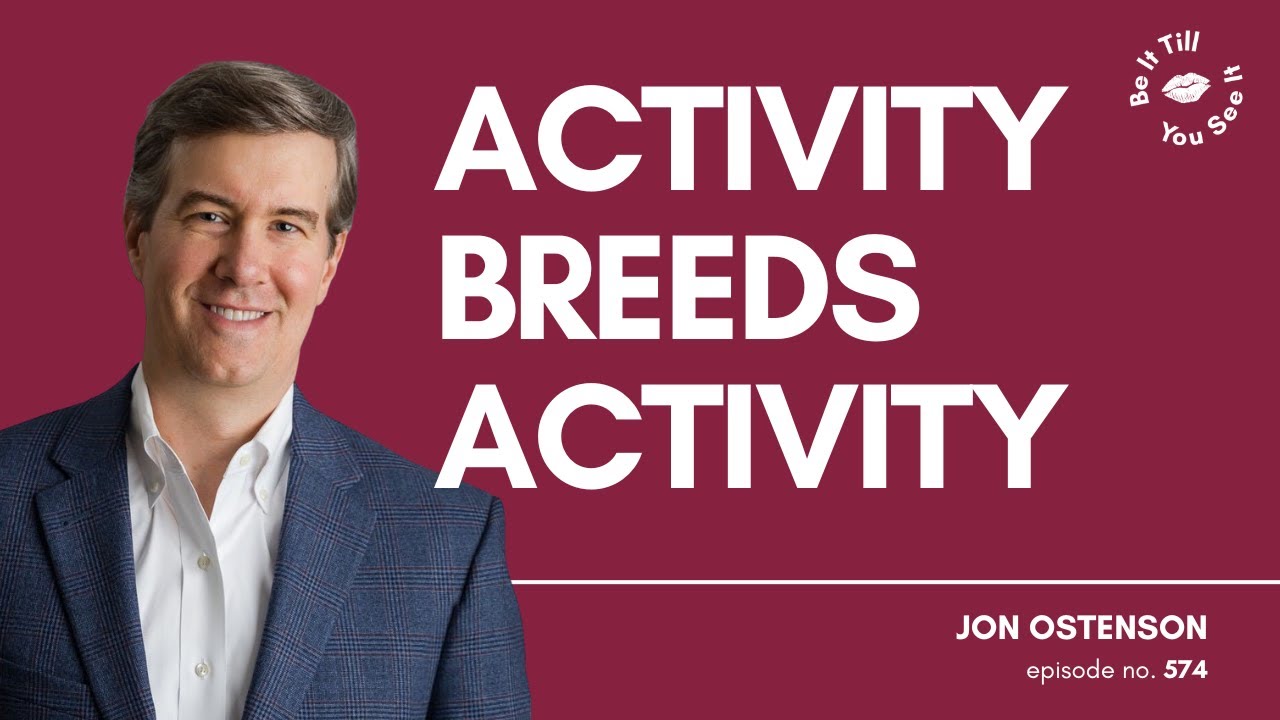



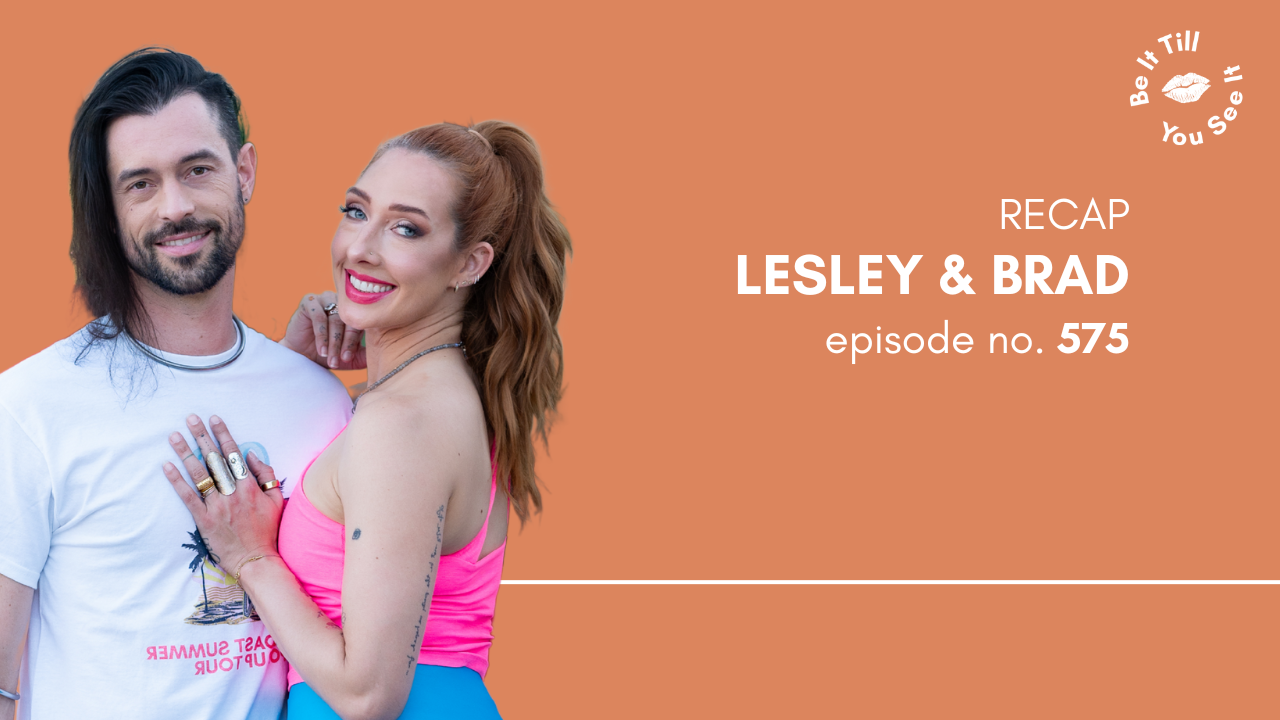
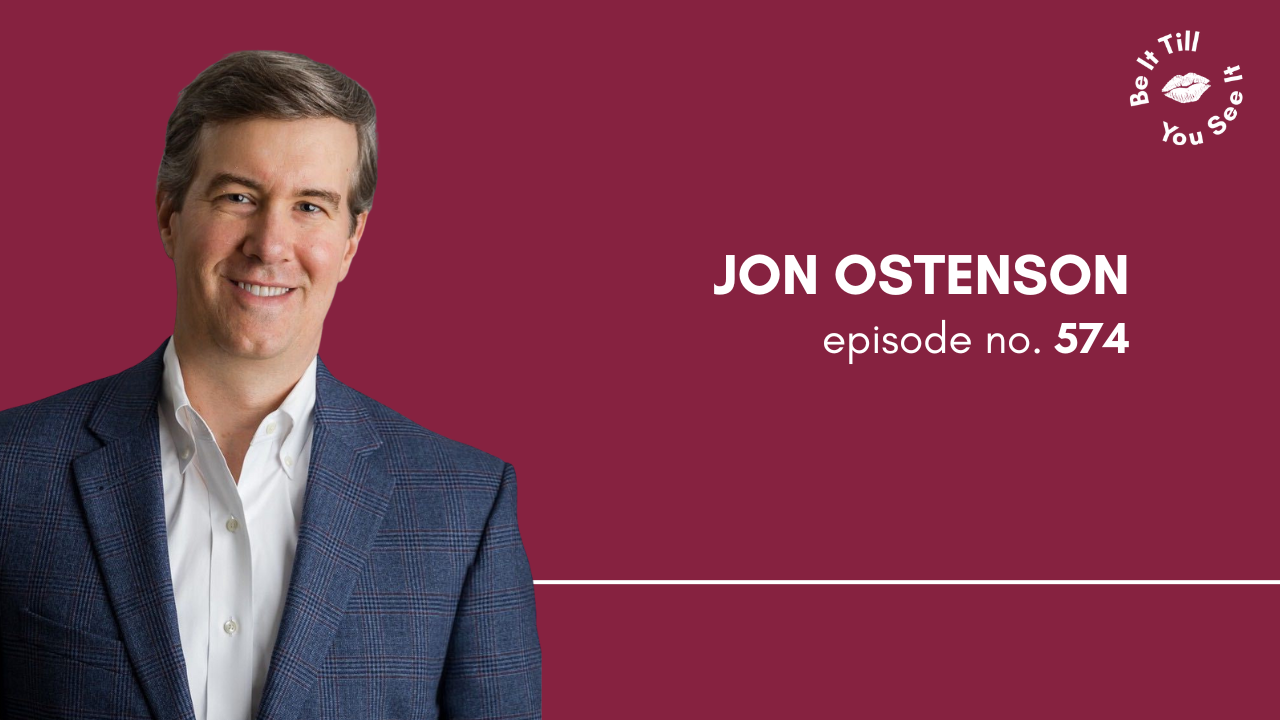

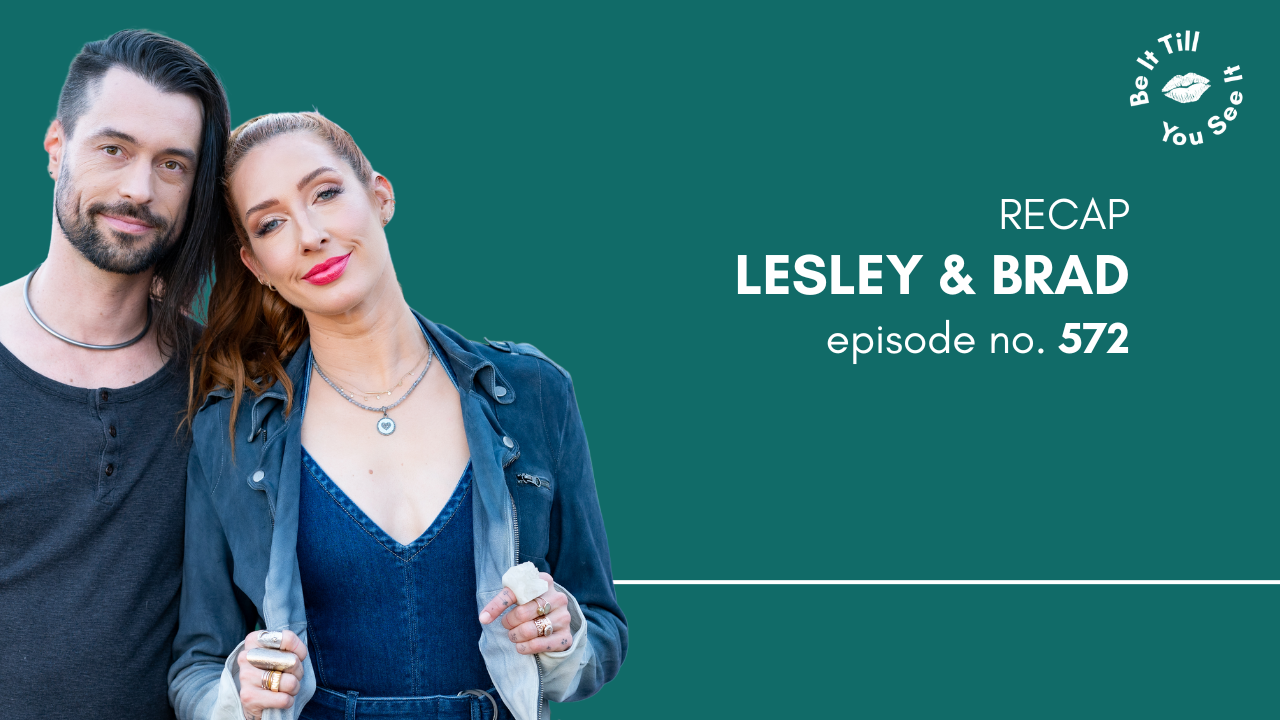
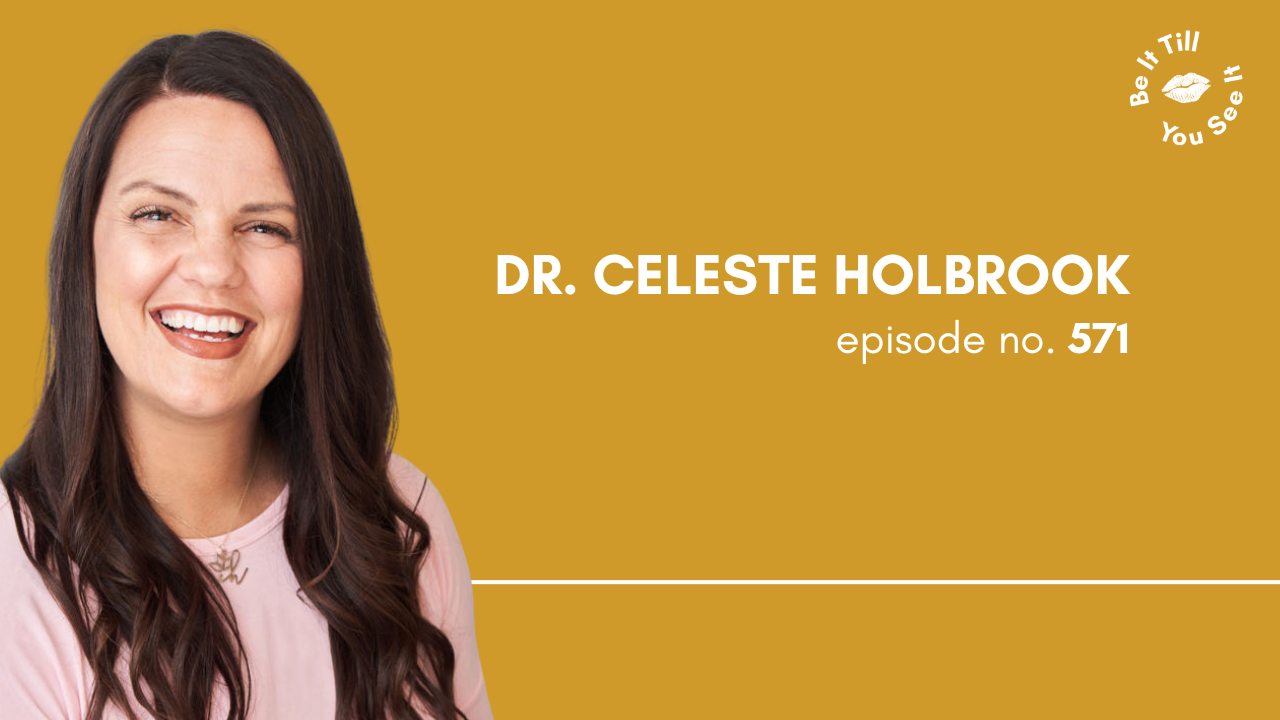
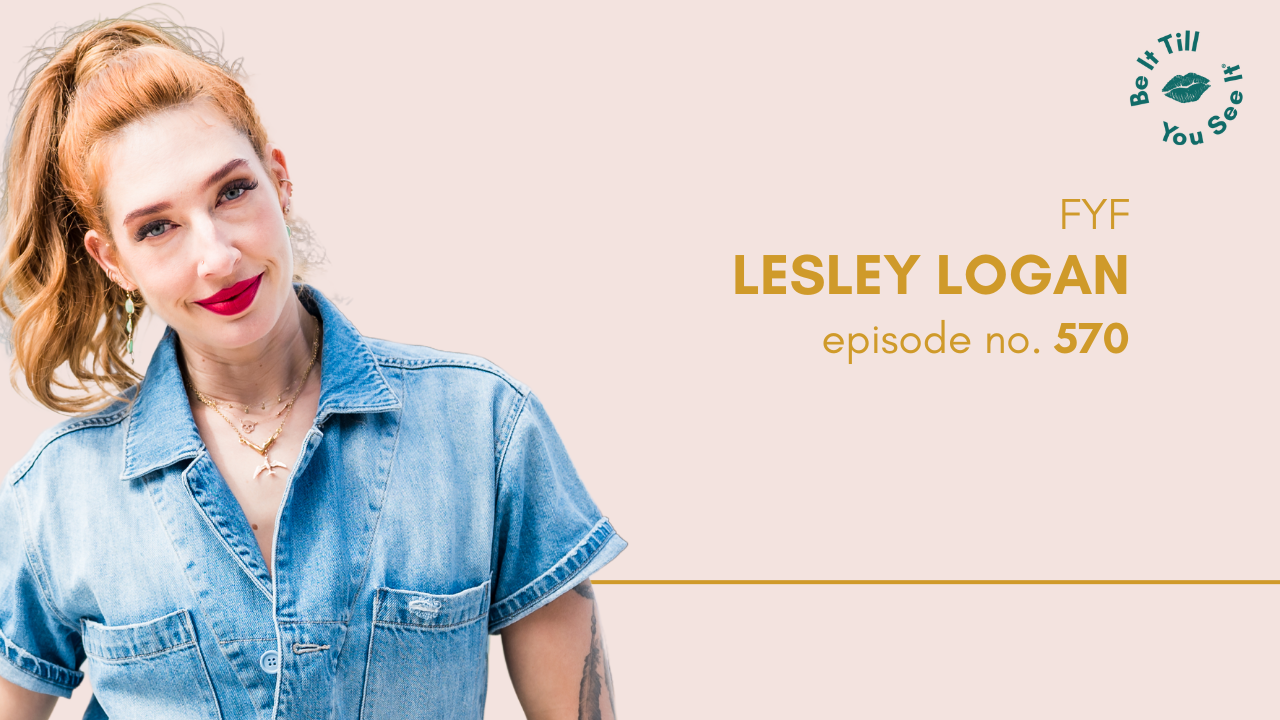
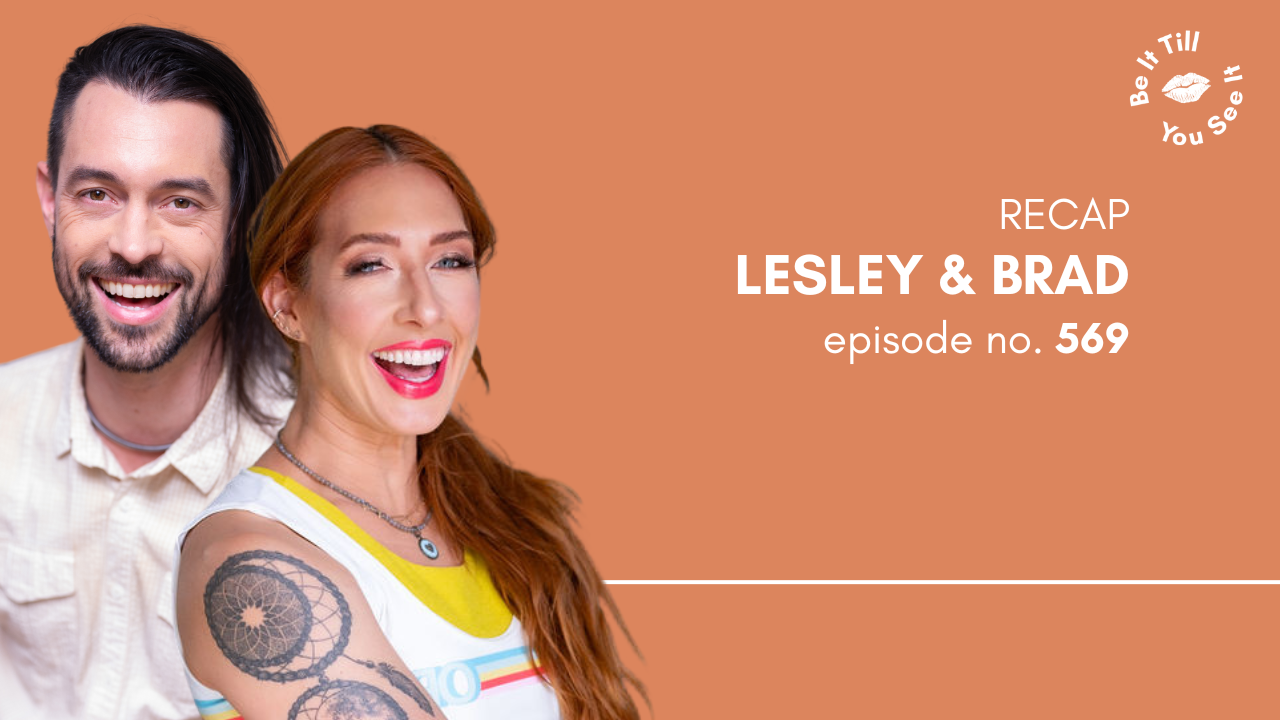
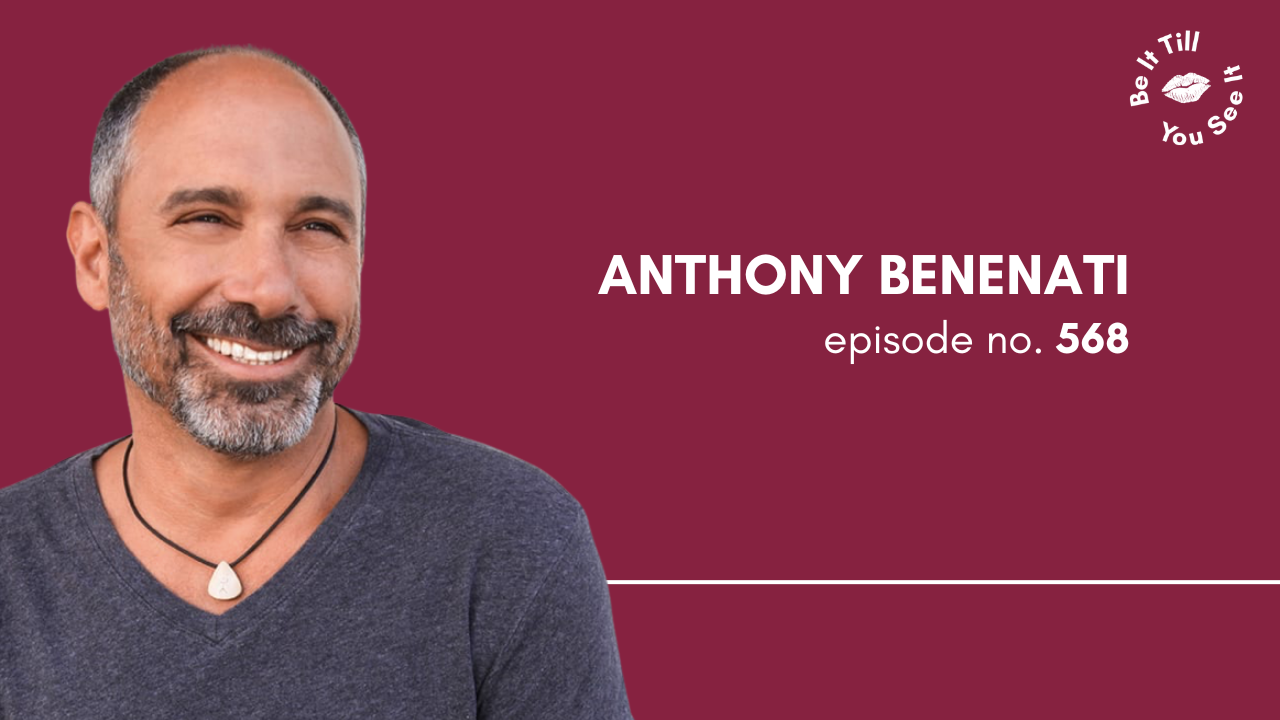
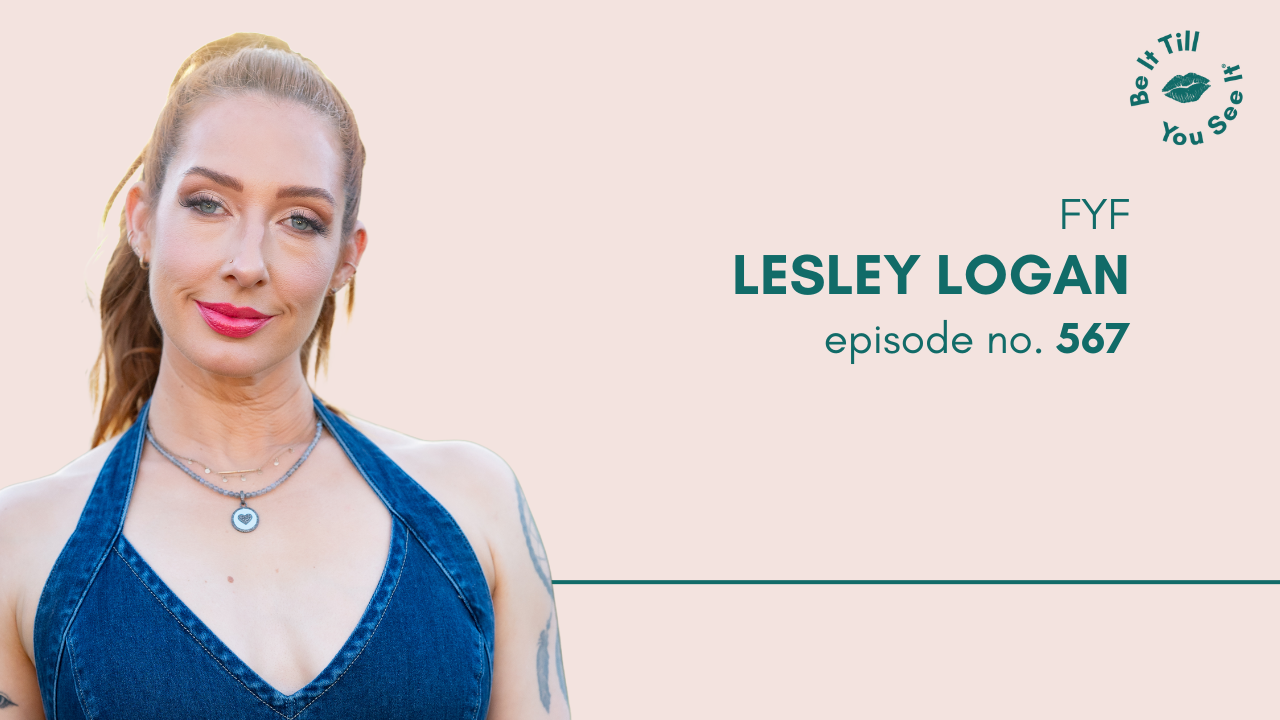


0 Comments